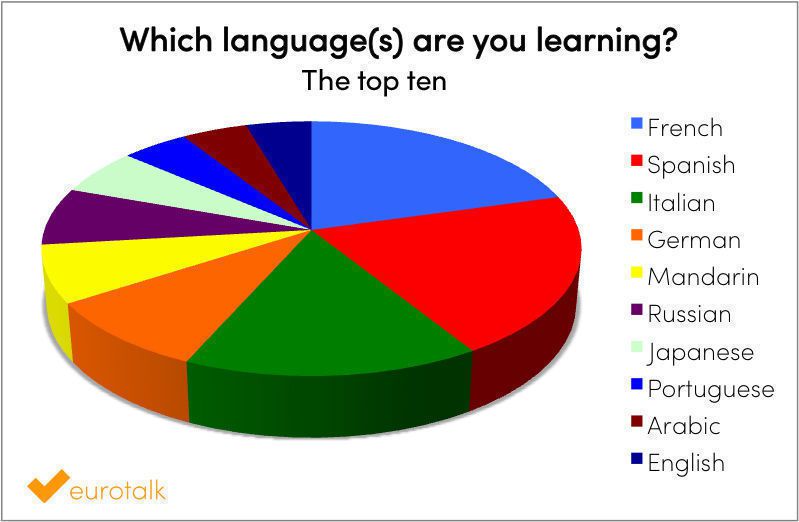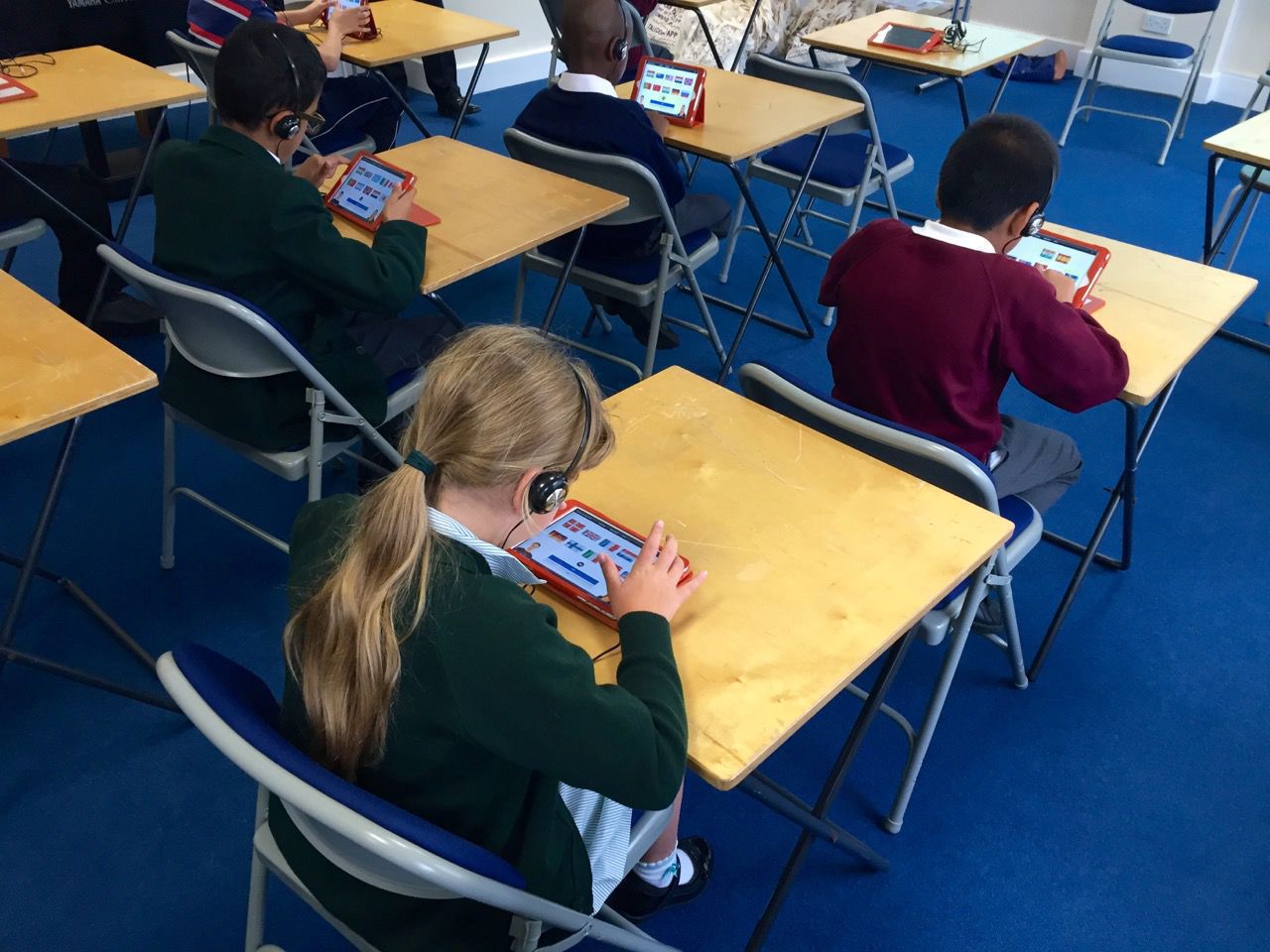#uTalkChallenge 2016: which language will you learn?
The uTalk Challenge is almost here!
From January 1st, start a new language for free, and learn as much as you can with our uTalk app by January 31st.
The uTalk challenge is open to everyone and totally free, so if you’d like to join in, you can find more details and sign up to the challenge here: eurotalk.com/utalkchallenge
With 130 languages to choose from (we’ve just added Greenlandic and Indian English to the app, so there’s now even more choice!), there’s something for everyone – and we’re certainly covering a variety of languages here in the EuroTalk office, where competition is bound to be fierce…
Safia – Mandarin Chinese
My mum and little sister despair at my lack of ability to speak any Mandarin so it’s probably about time to rectify the situation. And then they can’t gang up on me anymore when we play Mahjong!
Alex – Turkish
My best friend and her twin sister at uni are Turkish Cypriot, and they always speak Turkish between the two of them when they’re with us, so I want to be able to understand who or what they’re talking about.
Nat – Welsh
I always intended to move to Wales one day so thought I should learn a bit of the language – plus I’m interested to see how much my (limited) Cornish will help with Welsh!
Ioana – Argentinian Spanish
I want to be able to chat with the lovely non-English speaking relatives of my boyfriend, and also to unexpectedly add Spanish words to our daily conversations.
Adi – Arabic
I lived in Dubai for six years, and I hardly know any Arabic, so it’s high time.
Liz – Welsh
No particular reason, if I’m honest; I just fancy a challenge! I think trying to say Llanfairpwllgwyngyllgogerychwyrndrobwllllantysiliogogogoch whet my appetite…
Steve – Scots Gaelic
Scotland is one of my favourite places in the UK and I’d like to learn a Celtic language which is still spoken there.
Simon – Polish
It’s the second most common language spoken in the UK. It’s very different from anything I’ve learnt before, and would be interested to try and pick up a few words and sentences and then try and see if I can hear them in real life!
Brett – Arabic
I have been to the UAE on a couple of occasions this year. I am going again next year to meet some schools who need a solution to help get their English-speaking students to speak Arabic. If I’m trying to help them, then I should really learn it too.
Pablo – Romanian
My girlfriend is from Romania. I’ll try to be able to say something else other than her name and ‘da’.
Which language will you learn?
PS No EuroTalkers were harmed in the making of this blog post.
Learn Chinese? No problem for our Junior Language Challenge semi-finalists!
As a EuroTalk newbie, I had no idea what to expect when it came to the Junior Language Challenge. I have heard a lot of stories (all good, I promise) over the last couple of months on what to expect at the semi-finals. We did a few practice rounds here at the EuroTalk office and I thought we had all done pretty well at getting the hang of Chinese, considering how hard the body game was! However, after the first round at my first semi-final, I realised that we were actually all pretty awful.
For those of you who are also new to the Junior Language Challenge, it is an annual competition for children who are under 11 years old. It runs from March until October, where the final is held at Language Show Live, London Olympia. Over this period, the children participating learn three languages. This year we chose Portuguese, Chinese and Arabic, three very different and difficult languages to learn. However, the children did not appear to struggle at all; the scores were amazing across all the semi-finals, with children regularly scoring top marks in the games.
There was a lovely atmosphere at the semi-finals I visited, and both hosting schools were fantastic at making everyone feel welcome (as well as providing us EuroTalkers with a fabulous lunch). The children, teachers and the parents were clearly buzzing with excitement and nerves. Every child put 100% effort into the games, even in the rounds which they made clear were not their favourites!
Even though it’s a competition, it was clear to see there were no hard feelings between the children. All were delighted to receive a goodie bag and a medal, and were eager to find out the final language. The whole thing was organised brilliantly by our marketing manager Liz, and couldn’t have happened without the support of all the schools, pupils, parents and teachers involved; so we thank you all for this! You have also helped us to raise nearly £6,000 for onebillion, who aim to bring education to some of the world’s poorest countries by developing apps. These apps are in the children’s native language and help them to learn maths, English and how to read. This money will help to continue onebillion’s amazing work in Malawi and change the lives of so many children.
The JLC is far from over yet! With the final less than 3 weeks away, on October 16th, the children now have the tough job of learning Arabic for their third language. The 33 finalists will go head to head at London Olympia, for the title of Junior Language Challenge champion 2015, in what promises to be a nail-biting competition. The winner will be going on a family holiday to Africa and we wish everyone taking part in the final the best of luck!
Are you coming to Language Show Live this year? If so, please do come up to seminar room 3 on Friday morning to watch the JLC final – everyone’s welcome!
Alex
Talking about Time: Insights from Other Languages
The following post is from Paul, an English teacher who lives in Argentina. Paul writes on behalf of Language Trainers, a language teaching service which offers foreign-language level tests as well as other free language-learning resources on their website. Check out their Facebook page or send an email to paul@languagetrainers.com for more information.
If you love languages, and you’d like to guest blog for EuroTalk, please get in touch; we’d love to hear from you.
Talking about Time: Insights from Other Languages
Time: it’s an essential part of our everyday life, and we talk about it constantly — yet we can’t see or touch it. In English, we usually conceptualize time as a linear distance along a horizontal plane. This seems totally natural to us: time can be long or short, deadlines can be close to us or far away from us, and we have no problem representing minutes and hours on a timeline.

Image via Pexels
But as common as these expressions are, they raise some important questions about how we express time through language. As we’ll see, we often use conflicting metaphors to describe the passage of time. And other languages express time in a completely different way, challenging this anglocentric notion of time that seems so natural to English speakers.
Does time move around us, or do we move through time?
There’s no question that our relationship to time is a dynamic one: days pass, we get older, and the future becomes the past. But who’s doing the moving: time, or us? Expressions like “time flies” or “the hour dragged on” suggest that time moves and takes us with it. Indeed, if we talk about an upcoming test — “The final exam is getting closer” — we can certainly phrase it in terms of time moving towards us.
But we can also talk about the same test by saying “We’re getting closer to the exam date”. Suddenly, the relationship is flipped: now time is static, and we’re moving through time into the future. Indeed, language enables us to conceptualize time in terms as a static entity that we move through, as well as a dynamic entity that moves around us.
In just the English language, we have already found some peculiarities about how we express time. But when we introduce other languages into the equation, the picture gets even more interesting.
Is time horizontal or vertical?
In English, regardless of whether time moves towards us or we move through time, this movement is definitely horizontal. The words we use to describe time — “push back” a deadline, “be ahead” of schedule — are the same ones we use to describe horizontal distances (e.g., “take a step back”, “walk ahead of her”). That is, for English speakers, time is horizontal, with the past behind us and the future in front of us.
But this isn’t necessarily the case in Mandarin Chinese. For Mandarin speakers, it’s possible to talk about time in the same way as English speakers, with time running along a horizontal plane. But it’s also common to use vertical terms to describe the order of events, days, semesters, etc. For instance, the words shàng (up) and xià (down) can be used to express temporal relations: xià ge yuè means “next month”, and shàng ge yuè means “last month”.
Thus, in Mandarin, our familiar horizontal timeline can be flipped vertically, with the past being up and the future being down.
Is time a distance or a quantity?
Two classic ways to express time are the timeline and the hourglass. However, these point to starkly different metaphors. Whereas a timeline suggests that time is a distance, an hourglass suggests that time is a quantity. In English, we generally prefer to talk about time as a distance — saying that something “lasts a long time” is more common than saying it “lasts a lot of time”.

Image via Pixabay
In Spanish, however, this isn’t the case. Indeed, saying tiempo largo (literally “long time”) sounds odd in most dialects; instead, mucho tiempo (“a lot of time”) is much preferred. Greek, too, features this tendency to use volume-oriented metaphors, using words like megalos (“large”) and poli (“much”).
Thus, whereas in English, our use of language favors the timeline, other languages like Spanish and Greek make greater use of the hourglass in their temporal expressions.
Is the past in front of us or behind us?
In English, we can look back into the past and forward into the future. This is as clear as day to us: the past is behind us, and the future is in front of us. Yet in spite of how obvious this may seem to us, this isn’t the case in all languages.
Take Aymara, an Amerindian language spoken in some regions of Bolivia, Peru, and Chile. In Aymara, the past is described as being in front of us, whereas the future is behind us. Though this conception of time seems jarring to us English speakers, it’s logical: we can see in front of us, just as we can remember the past; but we can’t see behind us, just as we can’t predict the future.
To our English-speaking brains, it seems only natural that time is a distance that moves horizontally. But as we’ve seen, this isn’t necessarily the case across languages: time is a complicated concept, and can be expressed through a variety of metaphors. Indeed, as any language learner knows, languages aren’t just sets of words, but rather bring with them a whole new way to view the world. That’s just one of many reasons why learning a language is such a great use of your time — whether that time be above you, below you, in front of you, or behind you.
Just how bad was Mark Zuckerberg’s Mandarin anyway?
A couple of weeks ago, Mark Zuckerberg shocked the world by taking part in a 30-minute Q&A session in Mandarin Chinese. And we were all super impressed.
It was obvious, even to a non-Mandarin speaker, that he wasn’t completely fluent, but he managed to keep going for almost the full half hour, and his audience at Tsinghua University in Beijing seemed to enjoy his jokes, and his efforts at speaking their language. And it all sounded pretty good to me.
Which just goes to show how much I know. Not too long after the video appeared online, Isaac Stone Fish, Asia Editor at Foreign Policy Magazine, gave his assessment of the Facebook CEO’s efforts: ‘in a word, terrible’. The headline of the piece was, ‘Mark Zuckerberg speaks Mandarin like a seven-year-old’. Ouch.
Since the article was published, people have been jumping into the debate left, right and centre with their own opinions on how he did. James Fallows, writing for The Atlantic, said that Zuckerberg spoke Mandarin ‘as if he had never heard of the all-important Chinese concept of tones’, whereas Mark Rowswell, a Canadian comic who’s fluent in Mandarin and famous throughout China, took to Twitter with a more balanced view.
To clarify, Mark Zuckerberg's Chinese isn't very good. He's incredibly fluent for a Fortune 500 CEO. Which angle do you choose to take?
— 大山 Dashan (@akaDashan) November 1, 2014
Meanwhile, Kevin Slaten, program coordinator at China Labor Watch, was more concerned about the message being given out by Stone Fish’s article. Mark Zuckerberg, after all, is used to bad press and is hardly likely to be put off by a few negative comments. But Slaten looks at the bigger picture: ‘What is Stone Fish, a “China expert”, telling these students of Chinese when he is tearing down a notable person for speaking non-standard Mandarin? He’s telling them, “you’ll be laughed at”’.
Personally, I don’t know how good Zuckerberg’s Mandarin was. It sounded good to me, and as someone who really struggles with nerves when speaking another language, especially to native speakers, I’m pretty much in awe that he had the confidence to give it a go, particularly since it was a Q&A session, not a prepared presentation. (Not that I think Mark Zuckerberg is particularly short on confidence, but you know what I mean.) Had the audience sat there shaking their heads, looking confused or angry, things might be different, but they clearly appreciated the effort he’d put in, so who am I to judge?
Making mistakes is part of learning a language. Everyone has a funny or embarrassing story about a time they used the wrong word, or – in the case of languages like Mandarin or Thai – got the tone slightly incorrect and ended up saying something completely different than what they intended. There’s no shame in it, and in my experience, people appreciate the effort made. Mark Zuckerberg didn’t have to do that interview in Mandarin. He could have done what was expected of him and spoken English. And maybe he messed it up, but I bet everyone in that audience went home with a smile on their face (even if it was more from amusement than anything else).
Isaac Stone Fish has since responded to the criticism of his criticism, stating that his issue was with the media outlets who described Zuckerberg’s Mandarin as fluent, when it wasn’t. Which is fair enough, and maybe some of his comments were taken out of context, but I think the main point stands.
There’s a quote by Abraham Lincoln: ‘Better to remain silent and be thought a fool than to speak out and remove all doubt.’ I don’t agree, at least not in the context of language learning. I say speak out, remove all doubt, have a laugh about it, and then learn from the experience. Otherwise, how will you ever get any better?
So let’s give Mark Zuckerberg – and every other language learner on the planet – a break.
What did you make of the Facebook boss’s Mandarin? Have you ever surprised people by speaking their language?
Liz
Which language are you learning? The results!
We had a great response to our recent language learning survey; thank you to everyone who took the time to complete it. First things first: we’re delighted to announce that the winner of the iPad mini prize draw is Konstantia Sakellariou. Congratulations, Konstantia – your iPad is on its way!
We wanted also to share a few of our findings with you. Some of the results from the survey were as we expected, others were quite surprising. Here are just a few of the things you had to tell us. Thanks again for all your thoughtful responses, we’ll put them to good use.
Which language(s) are you learning (or would like to learn)?
The first question was pretty straightforward. A couple of people ticked every language on offer (over 100) – now that’s what we call ambition! – but most chose between 1 and 5. Here are the top ten most popular languages:  Other popular choices included Greek, Swedish, Dutch, Brazilian Portuguese, Norwegian, Irish, Polish and Icelandic. We also got some requests for languages we don’t yet offer, like Guernésiais and Twi – we’ll do our best to add those languages to our list, so watch this space!
Other popular choices included Greek, Swedish, Dutch, Brazilian Portuguese, Norwegian, Irish, Polish and Icelandic. We also got some requests for languages we don’t yet offer, like Guernésiais and Twi – we’ll do our best to add those languages to our list, so watch this space!
Why are you learning a language?
Next, we wanted to know why you’re learning a language. Nearly half of the respondents chose travel as a reason, and almost as many said they were learning a language just for fun. 36% of respondents said it was for family reasons or for a relationship, and 27% for work. The results were quite evenly split though, showing that there’s no one overwhelming reason – everyone has their own motivation.  Among the other reasons, we had a range of answers, including an interest in the culture of the language, personal challenge and wanting to follow literature, film and music in other languages. Many people are living in another country, which was their main motivation for learning the local language. And one person said that their heart asked for the knowledge, which we loved 🙂
Among the other reasons, we had a range of answers, including an interest in the culture of the language, personal challenge and wanting to follow literature, film and music in other languages. Many people are living in another country, which was their main motivation for learning the local language. And one person said that their heart asked for the knowledge, which we loved 🙂
What prevents you from learning a language?
We were also interested to know what stops people from learning a language, so we asked you to rate the following reasons out of 5. The most common barrier to learning is a lack of time, followed by not having found the right method, and then the cost involved.  Incidentally, if you’re facing any of these barriers, you may like to check out our recent posts, on finding time to learn a language and learning on a budget. And if you’re looking for resources, did you know you can try out the EuroTalk learning method for free? Either visit our website, or download our free app, uTalk for iOS, to give it a go. We believe learning a language should be fun, because our research shows we learn much better if we’re enjoying ourselves, and this in turn makes it a lot easier to overcome the obstacles that get in the way. See what you think! Other answers included not having an opportunity to use the language, a lack of motivation and difficulty finding resources for the particular language they wanted to learn (we may be able to help there – we’ve got 136 languages and counting…).
Incidentally, if you’re facing any of these barriers, you may like to check out our recent posts, on finding time to learn a language and learning on a budget. And if you’re looking for resources, did you know you can try out the EuroTalk learning method for free? Either visit our website, or download our free app, uTalk for iOS, to give it a go. We believe learning a language should be fun, because our research shows we learn much better if we’re enjoying ourselves, and this in turn makes it a lot easier to overcome the obstacles that get in the way. See what you think! Other answers included not having an opportunity to use the language, a lack of motivation and difficulty finding resources for the particular language they wanted to learn (we may be able to help there – we’ve got 136 languages and counting…).
How have you used your language when travelling?
Finally, we asked how knowing another language has been useful when you’re travelling. There was no clear winner here, which just goes to show knowing a language is always useful! But the top response was that it gives you the ability to talk to locals in their own language; many people added that they felt more welcome as a result and that it gave them independence so they could make the most of their trip. There were lots of practical reasons too, with getting around and eating out narrowly beating shopping in the poll. If you missed out on the survey this time, don’t worry – we’re planning another one soon, so keep an eye on the blog (you can subscribe by email above to get the latest updates), or follow us on Facebook or Twitter. And if you didn’t answer this survey but would still like to have your say on any of the questions, you’re very welcome to email us or add your thoughts in the comments below.
If you missed out on the survey this time, don’t worry – we’re planning another one soon, so keep an eye on the blog (you can subscribe by email above to get the latest updates), or follow us on Facebook or Twitter. And if you didn’t answer this survey but would still like to have your say on any of the questions, you’re very welcome to email us or add your thoughts in the comments below.
Liz
Data above based on 877 survey responses.





